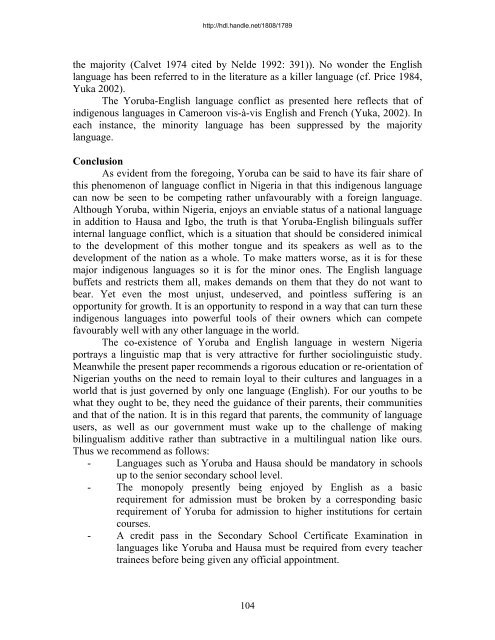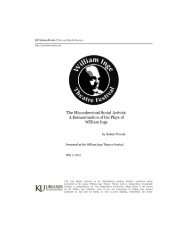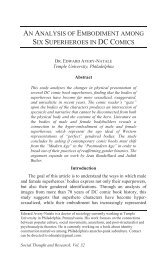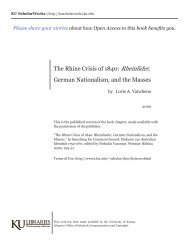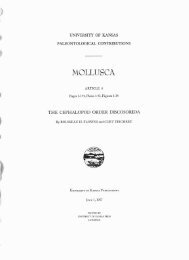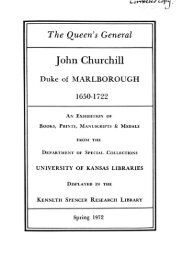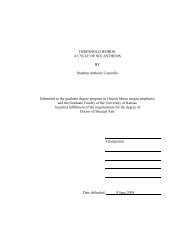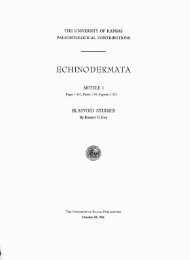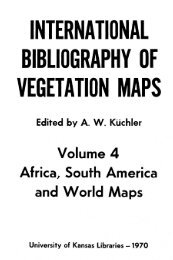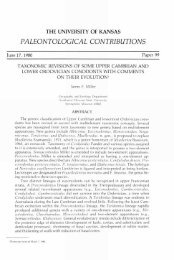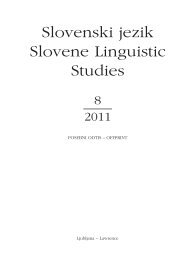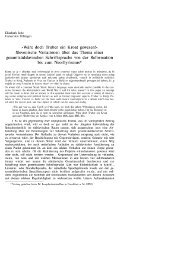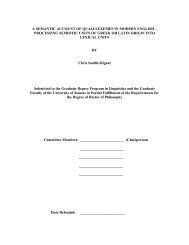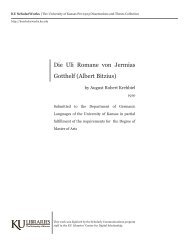LANGUAGE CONTACT AND LANGUAGE ... - KU ScholarWorks
LANGUAGE CONTACT AND LANGUAGE ... - KU ScholarWorks
LANGUAGE CONTACT AND LANGUAGE ... - KU ScholarWorks
Create successful ePaper yourself
Turn your PDF publications into a flip-book with our unique Google optimized e-Paper software.
http://hdl.handle.net/1808/1789<br />
the majority (Calvet 1974 cited by Nelde 1992: 391)). No wonder the English<br />
language has been referred to in the literature as a killer language (cf. Price 1984,<br />
Yuka 2002).<br />
The Yoruba-English language conflict as presented here reflects that of<br />
indigenous languages in Cameroon vis-à-vis English and French (Yuka, 2002). In<br />
each instance, the minority language has been suppressed by the majority<br />
language.<br />
Conclusion<br />
As evident from the foregoing, Yoruba can be said to have its fair share of<br />
this phenomenon of language conflict in Nigeria in that this indigenous language<br />
can now be seen to be competing rather unfavourably with a foreign language.<br />
Although Yoruba, within Nigeria, enjoys an enviable status of a national language<br />
in addition to Hausa and Igbo, the truth is that Yoruba-English bilinguals suffer<br />
internal language conflict, which is a situation that should be considered inimical<br />
to the development of this mother tongue and its speakers as well as to the<br />
development of the nation as a whole. To make matters worse, as it is for these<br />
major indigenous languages so it is for the minor ones. The English language<br />
buffets and restricts them all, makes demands on them that they do not want to<br />
bear. Yet even the most unjust, undeserved, and pointless suffering is an<br />
opportunity for growth. It is an opportunity to respond in a way that can turn these<br />
indigenous languages into powerful tools of their owners which can compete<br />
favourably well with any other language in the world.<br />
The co-existence of Yoruba and English language in western Nigeria<br />
portrays a linguistic map that is very attractive for further sociolinguistic study.<br />
Meanwhile the present paper recommends a rigorous education or re-orientation of<br />
Nigerian youths on the need to remain loyal to their cultures and languages in a<br />
world that is just governed by only one language (English). For our youths to be<br />
what they ought to be, they need the guidance of their parents, their communities<br />
and that of the nation. It is in this regard that parents, the community of language<br />
users, as well as our government must wake up to the challenge of making<br />
bilingualism additive rather than subtractive in a multilingual nation like ours.<br />
Thus we recommend as follows:<br />
- Languages such as Yoruba and Hausa should be mandatory in schools<br />
up to the senior secondary school level.<br />
- The monopoly presently being enjoyed by English as a basic<br />
requirement for admission must be broken by a corresponding basic<br />
requirement of Yoruba for admission to higher institutions for certain<br />
courses.<br />
- A credit pass in the Secondary School Certificate Examination in<br />
languages like Yoruba and Hausa must be required from every teacher<br />
trainees before being given any official appointment.<br />
104


